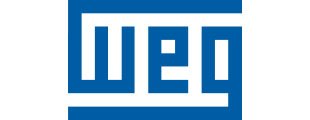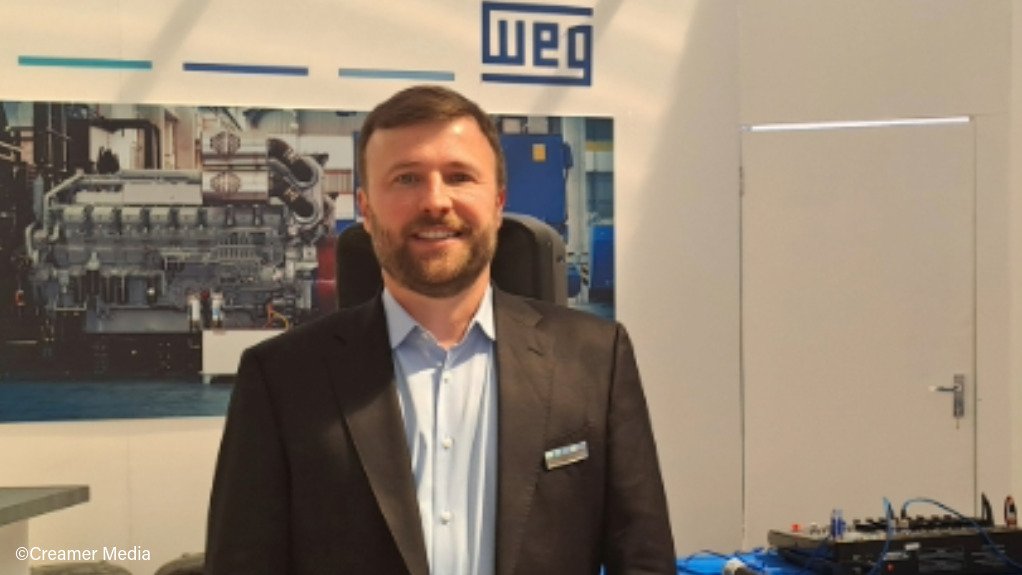Electrical equipment manufacturer WEG has worked for a year to internally evolve its brand, rebranding from Zest WEG to WEG, and with this comes an increased focus on sustainability.
WEG has established its presence in Africa over four decades under the Brazil-headquartered Zest WEG brand.
Outlining the company’s solutions and strategy at a media event at the company’s stand at Electra Mining Africa, which is being held this week in Johannesburg, WEG Africa CEO Eduardo Werninghaus explained that the company itself had not changed, but rather, it hasd rebranded with internal innovation.
“WEG has gone into its own internal path on revisiting what do we do, how we do [things] and how important environmental, social and governance (ESG) and sustainability [are].”
He said the increased focus on sustainability was also borne out of this being topical at the previous Electra Mining Africa, as well as owing to customer demand for products that would help them meet their ESG goals.
This year, the company’s Electra Mining Africa exhibit showcases its range of energy technologies – including solar, wind, steam and battery energy storage solutions.
Werninghaus said this range allowed customers to consider various hybrid energy options to meet their sustainability goals.
He added that the company had evolved its portfolio of products, while considering feedback from customers whose stakeholders were pushing them to do more in terms of ESG.
In solar, WEG has an extensive portfolio of products for all stages of PV solar generation projects, with solutions for energy conversion and internal distribution systems. These cover aspects from the plant to the point of connection with the electrical system through high-voltage substations.
The focus on clean energy is also driving the expansion of biofuel production, with steam power becoming more relevant.
WEG also offers customers technologies to improve energy efficiency. For example, the WEG W23 Sync+ electric motors can deliver energy savings of up to 30% in comparison with conventional IE3 induction motors using frequency inverters.
Werninghaus highlighted the technology employed in WEG’s frequency inverters, allowing speed variation in three-phase induction motors.
He said the company was also ready to meet the demand for battery energy storage when this arises.
WEG has also developed its WEGSEE+ platform for calculating potential energy savings, underscoring the importance of quantifying the impact of sustainability initiatives.
This allows customers to predict the potential savings achievable by replacing motors, gearboxes and inverters. The tool provides data to enable smart decisions so that resources can be optimised.
Part of WEG’s sustainability drive also entailed an increased focus on local production and local jobs, and upskilling workers in WEG Africa, Werninghaus emphasised.
Local production is done in the interest of reducing the carbon footprint associated with long-haul transportation of products, and aims to promote the local economy while reducing lead times for customers.
The company’s electric motor production lines in Johannesburg are an example of its local resource base.
The South African facilities also include the Robertsham operation, which engineers automation systems; the genset manufacturing operations in Cape Town and now also in Johannesburg; and the transformer manufacturing facilities in Wadeville and Heidelberg.
Werninghaus also mentioned that, with South Africa moving towards a minimum of IE3 motors in the country, the company’s Motor Division was considering implementing an exchange programme for old motors, to expedite the process of introducing more efficient motors to the market, once this became mandatory in the country.






